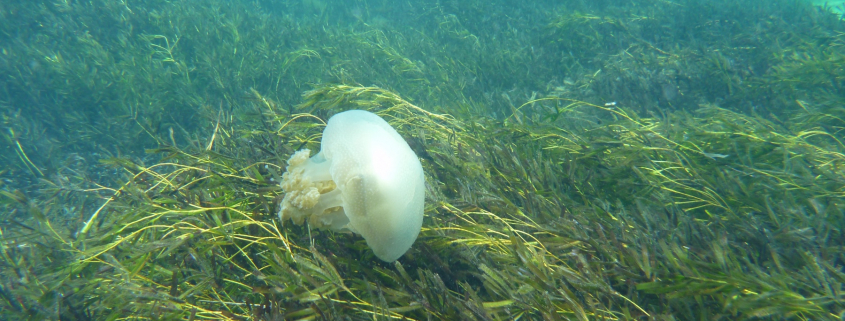Saving Shark Bay (Gathaagudu) Seagrass from Climate Change
Two ground-breaking seagrass projects have been awarded Commonwealth funding through the Australian Research Council (ARC) to test the ecosystem resilience of the UNESCO World Heritage site, Shark Bay (Gathaagudu), under a changing ocean climate.
Scientists throughout WA and the world have been rallying to raise the alarm about the demise of this unique environment and popular tourist destination (800 kilometres north of Perth), which has been experiencing environmental changes more rapidly since a marine heatwave in 2011.
A project led by the University of Western Australia (UWA) Professor Gary Kendrick has been awarded $517,000 over three years to continue research to test whether seagrass ecosystems can be safeguarded from climate change impacts by improving genetic connectivity in heatwave affected areas using innovative genetic rescue approaches.
“The project will generate new knowledge on how seagrasses can adapt and survive in situ,” Professor Kendrick said. “We expect to be able to improve conservation, management and restoration practices for seagrass meadows. This should provide significant benefits for long-term resilience of this economically and culturally significant ecosystem.”
Another ARC funded project will test the ecosystem resilience of the Shark Bay World Heritage Site to projected climate change. The research, led by UWA Dr Matthew Fraser, received a $324,000 ARC Linkage grant in addition to $90,000 in cash and $359,400 in-kind from partner organisations: Bush Heritage Australia; and Department of Biodiversity Conservation and Attractions.
“This project will generate new knowledge for marine conservation through analyses of habitat loss on nutrient budgets and productivity in seagrass and stromatolite ecosystems,” Dr Fraser said. “This research will improve our understanding of climate-driven shifts on ecosystem processes in Shark Bay, incorporating science-based evidence for better conservation and management. This will contribute to future-proofing Shark Bay’s World Heritage values, and more broadly demonstrate the consequences of the continued tropicalisation of Australia’s coastline.
Both projects will feed into a comprehensive plan to respond to environmental pressures facing the Shark Bay World Heritage site led by the Western Australian Marine Science Institution.

